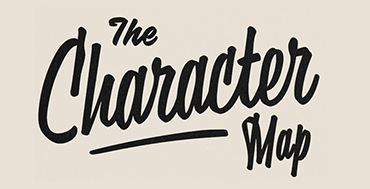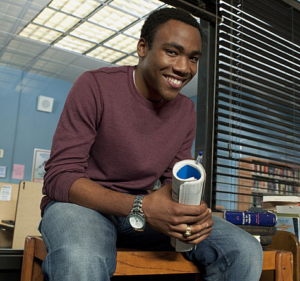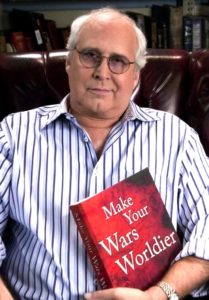#TypesTuesday – Community and Interdependent Characters
Types Tuesday
by Guest Contributor Oscar Harding
 Despite gaining something of a cult status after its six-season run, NBC sitcom Community still isn’t talked about enough. Not only is it smart and consistently funny, but its sweet and a true testament to the Power of Imagination. We’ve all suffered or enjoyed being part of a study group at some point in our life- no matter how absurd it gets, the show has always been relatable or at least has had an emotional truth to it.
Despite gaining something of a cult status after its six-season run, NBC sitcom Community still isn’t talked about enough. Not only is it smart and consistently funny, but its sweet and a true testament to the Power of Imagination. We’ve all suffered or enjoyed being part of a study group at some point in our life- no matter how absurd it gets, the show has always been relatable or at least has had an emotional truth to it.
The show is a brilliant lampooning of various kinds of Film and TV tropes, but the reason it works so well emotionally is “The Greendale Seven”. The Seven is a study group originally formed for a Spanish class. All seven then go on to take Anthropology, Biology, and History. In addition to The Study Group, their flamboyant Dean and insane former Spanish teacher round out the ensemble.
As the show progressed, certain actors from the key group of nine left the show and the emotional holes are all too visible.. Like in life, there is a bittersweet passage of time- although that doesn’t really justify a drop in quality. It just proves that character is always key. This is a lesson that both Lost and, perhaps, Twin Peaks could have learned from. The simpler something is, the better.
The Study Group is utterly dependent upon each other. Their dynamic is severely impacted when anyone is missing. They even regress as people, in some instances. I’ll be exploring how each member is part of a jigsaw puzzle that only really works when every piece is put together. Without each and every person, the show doesn’t quite work as effectively.
Power of Will

“Get me something cold and imported”
Although it could be argued greatness is thrust upon him, no Power of Imagination character would be able to control a group of people in the same way Jeff does- that character type is for the most part selfless. Jeff is every bit a Power of Will character. However, he is not a villain but instead a complex protagonist. He may be in control most of the time, but he only ever flexes his muscles when he is challenged, or actually called upon to enforce his will on others. Although he doesn’t often actively seek to be a leader or be in control, when his authority is threatened by outsiders he becomes aggressive. This is when his Power of Will character is most apparent.
Despite his obsession with his health and physique, he prides himself on avoiding work and actually putting in effort- the very crux of the show is that Jeff has to go back to college because he falsified his qualifications. He is terrified of losing control and will do whatever he can to keep it. If anyone is considered better than Jeff, he will snap- this is when his Power of Will character is most apparent. He is terrified of losing control and will do whatever he can to keep it. If anyone is considered better than Jeff, he will snap- this is atypical behaviour of Power of Will characters.
So he may not conquer and dominate, but when someone gives him power willingly, as he is charming and convincing, he becomes obsessing with keeping it- and it is the Study Group that encourages him to act on the Power of Will personality he has. It is fascinating to see a protagonist that is a Power of Will character, because they exhibit traits that are traditionally considered by villainous and antagonistic. But he is incredibly likeable whether we see his flaws or at his default mode of “the leader”. As the show goes on, his warmth and affection becomes more apparent and he softens. However, his Power of Will traits can come through at any moment.
Power of Idealism
“You seemed much smarter when I met you”
“Thank You”
Being part of a group means Britta can indulge the worst traits of being a Power of Idealism character type. She wallows in self-pity, suffering intense mood swings and always having someone to exhibit her intense pain or joy to. Whilst the Study Group can actually benefit each other in some way, acting as foils for each other’s character types, Britta is the only member who actually outright suffers by being part of a group. By actually belonging and being backed up by friends, there is no epic drama so she has to create it.
A former “political activist”, in the loosest sense, Britta Perry (Gillian Jacobs) has an interesting arc in that she goes backwards once she joins the Study Group. Every other member either remains an unchanging constant, or evolves into a better person. Britta begins as the stable heart of the group, but soon becomes referred to as “the worst” and a “buzzkill”, and it’s all downhill from there.
She soon becomes the clown of the group, even more so than Pierce. This can be attributed both to the dynamic of the Study Group, but also the fact she is a Power of Idealism character. These characters, such as Carrie Bradshaw, Rick Blaine and Zhivago, believe life is a dramatic struggle, forever needing to be epic and exceptional. Britta preaches activism constantly, reminding people of how the system is oppressing them, and how there is injustice they should be speaking out against, yet she can never quite deliver on this herself.
However, her constant striving to tackle what’s wrong in the world does rub off on the rest of the group- more often than not, she is the one to tone down Jeff, or make Pierce be more considerate of how his actions affect others. It is interesting how her character can, in moments of clarity, save the Study Group from itself by reminding them never to be complacent.
Power of Reason
“TV adheres to logic, reason, rules. But in real life, we have this. We have you.”
Power of Reason characters see the world as a series of puzzles to be solved, and always use a frame of reference to decipher things, be it a simple conversation or an actual mystery. Abed’s frame of reference is Popular Culture. When he does not get his way, and people or events deviate from his line of reasoning, he goes beserk. This is a regular occurrence and is the only time we see the cool, logical Abed a dramatic breakdown.
Abed Nadir (Danny Pudi) may not be the leader of the group, or even its central focus, but he is certainly its heart. He represents the best and worst about Community. Although it is a habit he improves upon as the show progresses, and the Study Group makes him less of a Power of Reason character, Abed filters his understanding of the world through what he sees in Movies, TV shows and comic books. He believes real life is like a TV show, and is obsessed with meta narratives.
He is a classic Power of Reason character, only getting emotionally involved with events when he believes it will drive forward the narrative of the TV show in his head, or a student film he happens to be making. The Study Group inadvertently helps him engage more emotionally and be more socially conscious, but they also encourage his bad habits by going along with many of his more insane ideas that allow him to better understand the world. Because he does not get tangled up in petty arguments and affairs of the heart, like everyone else, his detachment can often resolve conflict. In his most graceful moments, Abed is capable of incredible warmth because of the friends he surrounds himself with- and it is a pure warmth because he is unaware of his impact on others as it is a distraction for him and he admits to not fully comprehending things in the same way as the others.
Power of Conscience
“I am being assertive, and it is getting results!”
Power of Conscience characters, especially in comedies, are exposed for their hypocrisies, and the dark side of their character- going to extremes to maintain what they believe is just- can make for some very funny scenarios. We learn that Annie is unhinged and it is always hilarious, rather than disturbing. She starts as uptight, obsessed with maintaining order, and eventually learns to relax- but evens as her character learns and grows, she maintains a neurotic streak that comes out at the most inconvenient times.
Annie begins as one of the strongest characters, but in the show’s final season she is doing evolving and is given little to do, rarely relapsing into her old ways but losing the essence of her character.
Starting out as arguably the “child” of the group, even though she and Troy are the same age, Annie Edison (Alison Brie) is one of the characters who actually grows up and matures throughout the course of the show (as do Troy, Abed and Jeff. The others, not so much). However, the trappings of being a Power of Conscience character remain throughout.
When we are introduced to Annie, she is a goody two-shoes bookworm who always believes in what she deems to be fair and this is why her constant clashes with cheating slacker Jeff are so amusing. She is met with the polar opposite to herself, and their relationship is one of the most enduring in the show because they change each other for the better.
Power of Imagination
“You moving in here was supposed to tone us down!”
It’s interesting in such a madcap sitcom about a community college that former jock Troy Barnes (Donald Glover) has greatness thrust upon him in a place where no epic quest is ever likely to unfold. However, Troy’s arc from ignorant egotist to a hero with a heart of gold is arguably the most satisfying character arc out of anyone in Community. He leaves the show eventually with his head held high, and has changed for the better because of his time at Greendale with the Study Group. Whenever the show frequently takes diversions into genre spoofs of everything from westerns and space operas to police procedurals and action movies, Troy is always our reluctant hero even if he is not the natural leader.
Surprisingly, it is Power of Excitement character Pierce who turns to him most often for guidance and support (similar, in fact, to the dynamic of Rick and Morty). In fact, at some point every character puts their trust in Troy even when he believes he can’t help them. Like any Power of Imagination character, Troy brings harmony and balance, in this case to Greendale.
But, mostly because of his emotional investment in Abed, Troy willing to go along with the regular descents into high-concept madness that Community takes. He is a conventional Power of Imagination character in an unconventional setting you wouldn’t expect to house a reluctant hero like Troy.
He is the only person who truly understands Abed, and their friendship is one of the most charming in American television. He often guides Abed and assists him more than anyone else, because he has responsibility placed on him to guide his friends on the right path, whether it is in a ludicrous scenario or real-life dilemmas. Whether his foil is Power of Excitement or Power of Reason, Troy is forced to step up for the good of those around him.
Power of Excitement
“Ain’t no party without drugs!”
Pierce Hawthorne (Chevy Chase) is a perennial agent of chaos, immediately identifying him as a Power of Excitement character. Pierce adheres to every stereotype of a Power of Excitement character- constantly seeking to please himself and have fun, he gets bitter and jealous when he is excluded from anything exciting, often with disastrous results.
A spoilt man-child who inherited a moist towelette empire, despite belonging to an accepting Study Group, Pierce often sabotages his friends as well as himself simply through his personality. As we explore his backstory through the show, we learn he is very much a “Peter Pan” type who never really grew up on account of his enormous wealth and oppressive father. He may not be the suave playboy type, like other Power of Excitement characters such as James Bond, Tony Stark or Indiana Jones, but his downfall is his refusal to ever settle. He has studied at Greendale longer than any of his friends because it is the only place where he can get his “fix”.
Pierce has moments of elderly wisdom and profound kindness, but they are few and far between. When these moments occur, they have so much more impact because it is unexpected, so is never completely irredeemable, but he never really evolves because of belonging to the Study Group, remaining a constant irritant and disruptor. However, there is an entire episode dedicated to the group dynamic when they temporarily exclude Pierce, and it becomes apparent that they need him every bit as much as he needs them.
Power of Love
“He’s dead to me, and anyone who goes to that fight will be too. Now, let’s sing!”
Power of Love characters may not mean to be so domineering and aggressive, but it is in their nature, and Shirley is no exception. Everything Shirley Bennett (Yvette Nicole Brown) does is for those that she loves, whether it’s her sons, the Study Group or Jesus. She often believes she has to save her immoral friends in the Study Group from themselves. Even her friends have described her as “cloying” before.
But Shirley always means well- there are rarely malicious or selfish actions behind her intentions. But she displays the archetypal flaws of Power of Love characters- her affection and concern seems to translate in possessiveness and and aggressive need to dominate her friends hearts. Just because she seems sweet, besides her constant baked goods, doesn’t mean she is innocent.
Shirley sometimes just doesn’t understand why her friends don’t listen to everything she suggests, but she is relentless in making them see her point of view for their own good. She has sometimes even admitted that she is so kind and affectionate so that others will love her unquestionably.
Surprisingly, the characters who understand her most are Jeff and Pierce- sharing similar traits and the more life experience than their younger friends, these two relationships in particular are interesting because they show each other their strengths as well as their flaws. A Power of Love character makes sense as part of an ensemble, be it dramatic or comedic. Shirley belongs in the Study Group and the other members don’t realize how important it is they have a friend like her, just as flawed by the most loving and forgiving of them all.
Power of Truth
“I’m nuts, Jeff! Get with the program!”
Power of Truth characters are usually Detectives like Clarice Starling, or neurotic observers like Jerry Seinfeld. They believe there is always something sinister going on, often involving him. These characters are often paranoid, and forever restless. There is no one more paranoid, and of the belief there is a great conspiracy afoot, then former Spanish-teacher-turned-student Benjamin Franklin Chang (Ken Jeong).
Chang is a borderline psychopath, constantly destructive and on the surface seems like an agent of chaos. But he is not a Power of Excitement character because he isn’t looking for adventure and pleasure. He genuinely acts out of a feeling of rejection.He just believes people are out to get him, and rightfully so- people constantly reject him and this only fuels his actions.
Whenever the student body of Greendale become exaggerated heroes or villains in high-concept episodes like the Paintball trilogy, Chang is usually switching allegiances or seeking those he (wrongly) believes are evil and bringing them to justice. His biggest desire is to belong to the Study Group, but he is not Power of Ambition because he doesn’t put on a front.
He is an outsider to the Study Group, and Chang shows us that, to quote another supporting character, “their love is toxic”. Because of they way they are, unwilling to accept outsiders, characters that want to belong with them, like Chang and Dean Pelton, find their character traits exacerbated. If the Study Group simply accepted Chang, he may have identified as Power of Excitement or Power of Ambition.
Power of Ambition

“I heard you guys having a tiff. What’s the ruckus?”
“We were just wondering how often a man can come in here wearing an elaborate costume to deliver us irrelevant news.”
Like all Power of Ambition characters, Dean Craig Pelton (Jim Rash) wants to put on a front of being, at the very least, competent. He might even achieve it if he wasn’t so occupied with trying to join a group of students. Power of Ambition characters tend to pride themselves on some form of material wealth, or lifestyle, anything that can show them to be the best, or outstanding in some way. For Dean Pelton, it is his numerous costumes, clearly a literal disguise for his need to please and to impress.
He will often show up out of nowhere, interrupt a Study Group meeting in an attempt to become involved with the plot of the episode. He is an incredibly lovable character despite this, and the Study Group are genuinely fond of him, something he is either unaware of or chooses to overlook- it’s hard to tell which one of these it is.
All he wants is for Greendale to be respected, for the Study Group to involve him in their zany adventures, and for the love of Jeff- two of these are achievable goals, but because of the Dean’s characteristics as Power of Ambition, one cancels out the other and he ultimately achieves nothing. Despite this, he remains a welcome presence, as opposed to an irrelevant character who leaves no impact since he does not evolve.
For more examples of all the character types, you can purchase my in-depth e-books at the ETB shop, or you can read more articles on all the “Power Of…” types including James Bond, Doctor Who, Batman and Sherlock Holmes, every Tuesday. There are also 9 pinterest boards full of character examples online. Check them out and let us know at [email protected] if you have any other suggestions.
SaveSave
SaveSave




Create a visual map for a character’s emotional journey. Pull stories from character rather from rote story structure beats. Some of the largest international media companies, use this in story and character development.


A clear concise guide for writers and producers to have by their side as they embark on a project. It gives a really vital reminder of what is key for story success.








No comment yet, add your voice below!